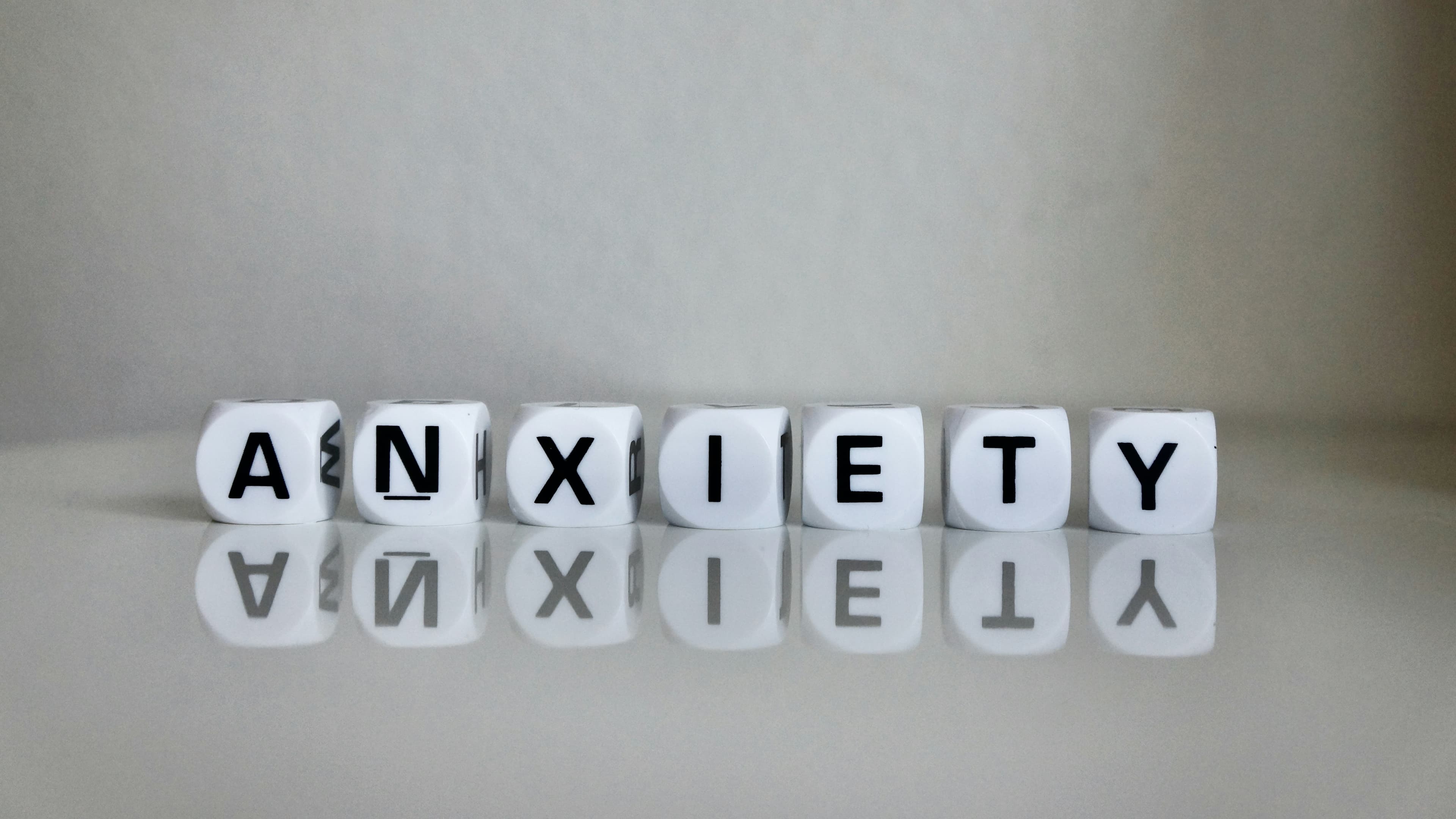Evidence-Based Anxiety Treatment
Discover effective treatments for anxiety backed by scientific research and expert reviews to help you find relief.

Evidence-Based Anxiety Relief Supplements
Carefully selected based on ingredients, effectiveness, clinical research, and user experiences.
Top-Rated Anxiety Relief Supplements
Disclosure: As an Amazon Associate, we earn from qualifying purchases. Links marked with are affiliate links.
Anxie-T Plus Anxiety and Stress Relief Supplement for Nervousness with Ashwagandha

Key Ingredients:
Benefits:
- Reduces stress and anxiety
- Promotes calm and relaxation
- Supports mental clarity
- Balances mood
Zenium Anxiety Relief Supplement for Stress, Adrenal Support - No Medication

Key Ingredients:
Benefits:
- Reduces anxiety and stress
- Supports nervous system
- Improves mood
- Enhances sleep quality
Goodbye Stress Softgels with Ashwagandha, L-Theanine, Anxiety Relief Supplement

Key Ingredients:
Benefits:
- Combats stress and tension
- Promotes relaxation
- Supports mental balance
- Reduces feelings of anxiety
Organic Ashwagandha 1300mg - Anxiety Relief, Stress Support & Mood Enhancer

Key Ingredients:
Benefits:
- Reduces anxiety and stress
- Supports adrenal health
- Enhances mood and focus
- Promotes overall well-being
NOW True Calm Amino Relaxer, Anxiety Relief and Stress Support

Key Ingredients:
Benefits:
- Supports relaxation
- Reduces anxiety symptoms
- Promotes balanced mood
- Assists with stress management
Comprehensive Anxiety Treatment Approaches
Therapy Approaches
Evidence-based therapies like CBT, ACT, and exposure therapy provide powerful tools to overcome anxiety disorders.
Medical Treatments
FDA-approved medications including SSRIs, SNRIs, and benzodiazepines can effectively reduce anxiety symptoms.
Natural Approaches
Lifestyle changes, mindfulness, meditation, and evidence-based supplements can help manage anxiety symptoms.
Latest Articles & Research
View All
Generalized Anxiety Disorder (GAD): The Ultimate Guide to Symptoms, Treatment & Management (2025)
Struggling with persistent worry? Our comprehensive guide to Generalized Anxiety Disorder (GAD) covers symptoms, causes, diagnosis, evidence-based treatments (therapy, medication, lifestyle), and coping strategies. Find help and learn to manage GAD effectively.
Read More
Understanding Anxiety Medication: Complete Guide (2025)
Explore the different types of anxiety medications (SSRIs, SNRIs, Benzodiazepines), their benefits, side effects, and key considerations to help make informed treatment decisions.
Read More
Best Anxiety Treatments: Evidence-Based Approaches in 2025
Explore the most effective anxiety treatments in 2025, including CBT, SSRIs, mindfulness, and emerging digital therapeutics. Make informed decisions about your mental health care.
Read MoreExpert Insights

Dr. Emily Richards
Clinical Psychologist, PhD
"Anxiety disorders are among the most treatable mental health conditions. With evidence-based approaches like cognitive-behavioral therapy combined with lifestyle modifications, most people can experience significant symptom reduction and improved quality of life."

Dr. James Wilson
Psychiatrist, Board Certified
"Treatment for anxiety should be personalized. While medication can be life-changing for many patients, others benefit most from therapy or integrative approaches. This site provides valuable information on the full spectrum of evidence-based options to help individuals make informed decisions."
Stay Informed on Anxiety Research
Subscribe to our newsletter for the latest research, treatment reviews, and expert advice on managing anxiety.
We respect your privacy. Unsubscribe at any time.
Frequently Asked Questions
The most effective treatments for anxiety often involve a combination of approaches. Cognitive-behavioral therapy (CBT) has the strongest evidence base for anxiety disorders. Medications like SSRIs and benzodiazepines can be effective for many people. Lifestyle changes including regular exercise, adequate sleep, stress management techniques, and limiting caffeine and alcohol can also significantly reduce anxiety symptoms. The optimal treatment varies by individual and anxiety type, so consulting with a mental health professional is recommended for personalized care.
The timeline varies by medication type. SSRIs and SNRIs typically take 2-6 weeks to show full benefits, though some improvements may begin earlier. Benzodiazepines work much faster, often providing relief within 30-60 minutes, but are generally prescribed for short-term use due to dependence risks. Beta-blockers, used for physical symptoms, work within hours. Consistency with medication and patience during the initial weeks are important, as are regular follow-ups with your healthcare provider to monitor effectiveness and side effects.
Yes, many people effectively manage anxiety without medication. Evidence-based approaches include cognitive-behavioral therapy (CBT), which has shown excellent results for various anxiety disorders. Regular exercise, particularly aerobic activities, can significantly reduce anxiety levels. Mindfulness meditation, deep breathing exercises, and progressive muscle relaxation are proven stress-reduction techniques. Limiting caffeine, alcohol, and improving sleep hygiene also help. For mild to moderate anxiety, these non-medication approaches may be sufficient, while more severe anxiety might benefit from combining these methods with appropriate medication.
Normal worry is proportionate to the situation, temporary, and typically resolves when the concerning situation passes. It doesn't significantly interfere with daily functioning. Anxiety disorders involve worry that is excessive, persistent, and disproportionate to the actual threat. They're characterized by physical symptoms (racing heart, trouble breathing), avoidance behaviors, and substantial disruption to daily life. While everyone experiences worry, anxiety becomes a disorder when it's chronic (lasting 6+ months for generalized anxiety), causes significant distress, and impairs work, relationships, or other important areas of functioning.